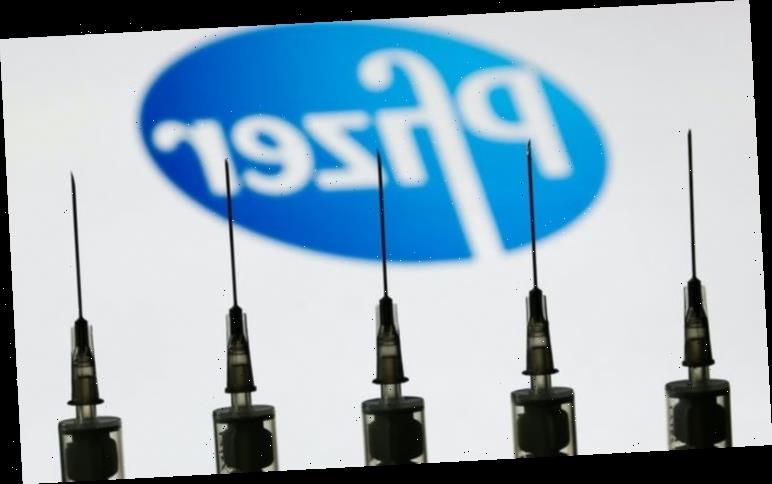We will use your email address only for sending you newsletters. Please see our Privacy Notice for details of your data protection rights.
Pfizer boosted coronavirus vaccine hopes this week as their vaccine – which they have worked on alongside German company BioNTech – passed a vital stage in its development process. Researchers found their vaccine was successful in 90 percent of cases, and world leaders have since pledged they will roll out doses as soon as they become available. The vaccine still has more hurdles to pass before it becomes publicly available, however, with mass-vaccinations unlikely until next year.
Will the coronavirus vaccine be safe?
The vaccine development process traditionally takes several years to finalise in most cases.
But the COVID-19 pandemic introduced a unique situation for scientists and governments worldwide, who had to squeeze years of preparation into months.
The US, where Pfizer is based, is now within spitting distance of their first workable jab after fast-tracking years of development into months.
While this may worry some people unfamiliar with the science behind the process, scientists believe the vaccine will be perfectly safe when it reaches the general public.
Both Pfizer and their German partners BioNTech have confirmed a high degree of safety with the jab.
They had to test the same number of people – 45,000 – as they would during a traditional vaccine trial, and in the same amount of time.
Scientists owe the quick pace at which they developed the COVID-19 vaccine to new technologies and streamlined funding, meaning the traditional development remains just as robust as any other.
To further put worriers minds’ at ease, the vaccine must also pass Medicines and Healthcare products Regulatory Agency (MHRA), Food and Drug Administration (FDA) and European Medicines Agency (EMA) expert reviews to receive approval for public use.
The rigorous testing and analysis will ensure the product which emerges is as safe as possible.
In the UK, the vaccine will have to pass through ministers on the Commission on Human Medicines, who advise the Government on its safety, quality and efficacy.
A small group of people may remain who have a general mistrust of vaccines, but they often base their concerns on misinformation.
DON’T MISS
Covid vaccine: The five challenges that threaten vaccine breakthrough – ANALYSIS
Elderly urged ‘get ready for vaccine call’ – INSIGHT
COVID jab will highlight idiocy of anti-vaxxers putting us ALL at risk – COMMENT
Are vaccines safe in general?
Vaccination is safe, and the most effective way to protect people from viruses.
But some common misconceptions exist which have persuaded people otherwise.
One of the most enduring myths – that vaccines cause autism – has no scientific basis despite discredited claims made by former doctor Andrew Wakefield.
They also do not overload or weaken the immune system, meaning people can take multiple doses in a short time if necessary.
Another common misconception alleges they include mercury (otherwise known as thiomersal), but they do not.
Some people may find they have allergies to vaccination, but this stems from adverse reactions to gelatine or eggs, which serve as a basis for incubating jabs.
They cannot cause allergies or other conditions, however, and people end up much safer taking a vaccine than not according to the NHS.
Source: Read Full Article




